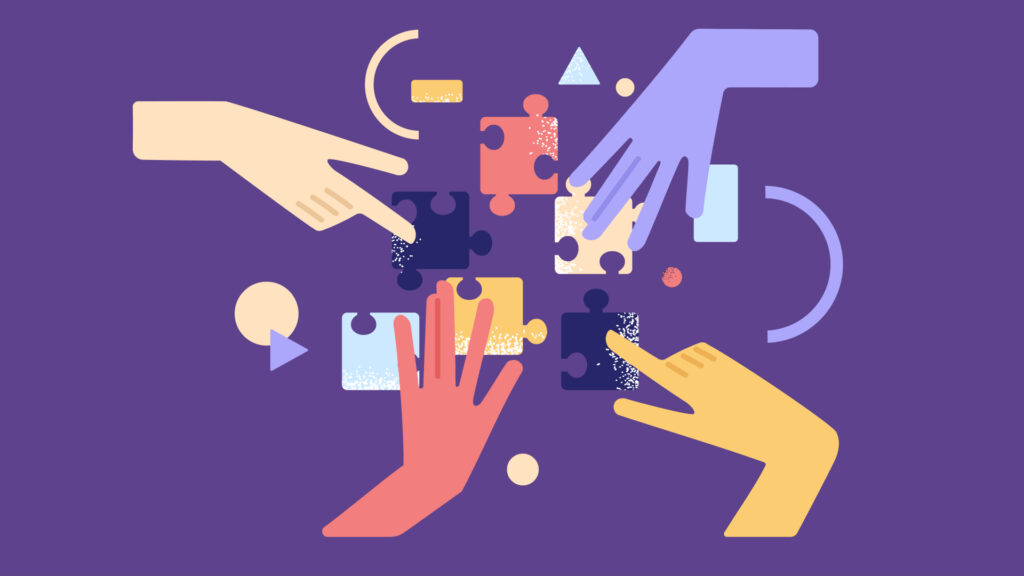“Prediction is very difficult, especially if it’s about the future.
– Niels Bohr (1885-1962), Danish physicist and Nobel Prize laureate for physics in 1922
More or less a year ago, in February 2020, the world entered its first wave of dramatic surprise when it realised that humans could actually die because of a virus: a mistake that someone from the last century would have never made.
A year later, many of us compare pictures of yesterday and today, to find some meaning in the time we lost, to spot a meaningful thread connecting all the Sundays and Mondays we have spent in our pjs in front of Netflix. We have decided that instead of looking at the past (which as Oratio said, dum loquimur, fugerit, has already gone while we are talking), we will look ahead, and imagine how Covid may change the course of our near future. What innovations will appear? What new customs and habits will unfold? Will there be changes in the way we travel, work, study, or simply are? Here’s a – positive and optimistic – view of what might happen. Because we all need a bit of carpe diem these days.
SCHOOL
Schools will go back to in-person teaching. Being in school has been missed too much by the students and teachers and parents are at breaking point schooling their kids at home for it to remain a “virtual experience” only: social interaction for kids necessitates this. But online tools, Zoom interviews, and the interaction between digital and face-to-face is here to stay. The need for continuous access to digital resources may finally drive a computerization of the school system, which could integrate traditional subjects with coding and computer learning. Online tools will become part of live teaching, and perhaps allow teachers to change the way they teach: less notionism and more mentoring, less standardization and more personalization.
THE END OF THE OFFICE
We think that smart working will become more and more the norm, and offices and large corporate buildings will slowly downsize or disappear. Not all work will become remote, some simply cannot, but a good chunk of it will. Mark Zuckerberg has announced that he expects that in the next ten years up to half of Facebook employees will work from home, and so has Twitter.
LIFESTYLES
If we no longer have to live in the city so we can work in the city, what’s going to stop us from returning to the countryside, buying a house by the beach, or moving to a remote area in the mountains? Only the stability of the internet connection. We foresee that in a post-Covid future the prices of those houses that are off the beaten track (away from commuter transport networks) could suddenly rise.
FLIGHT
If there’s one sector that’s been hit hard, it’s air transportation. While domestic travel in 2020 was down by 51% compared to 2019, international travel lost as much as 81%. Global airlines estimated they would need $80 billion (on top of the $170 billion already given to them by governments) to survive. It is not known when and how air travel will resume normally, estimates suggest that throughout 2021 and 2022 there will still be reduced services and cancellations. Rafat Ali, the founder of Skift, claims that the situation will never return as before, and that the big names in the industry will simply not return to previous conditions. It’s like the golden age of flying is down for good. What appears almost certain though is that in the future we will need an internationally recognized vaccination certificate to fly. In fact, the World Tourism Organization is calling for global coordination, internationally standardized certification, and harmonization of protocols, and insists that vaccination passports will become essential to even set foot on a plane.
HABITS
How have our habits changed after a year of pandemic? We don’t kiss in public anymore, we don’t hug an old friend, we stay a meter or two away when we are talking to our mother. What will happen in the future? Perhaps our way of interacting, that “touchy-feely” interaction between people who know each other (the hand on shoulder, a touch on arm) may become socially unacceptable.
Will we continue to have virtual happy hours? Will technology be able to give us the same quality of social interaction that is so important for keeping us sane? Or will our need for face-to-face interaction lead us to avoid new virtual mediums at some point? Science fiction often shows a dystopian future in which humanity interacts only via screen. Covid showed us that we will be looking for face-to-face interaction for a long time to come. A dinner at a restaurant, a night out with friends, a live concert in the park remain irreplaceable.
THE DOCTOR IS NOT IN
The future is telemedicine, computer diagnostics, specialized interventions and less and less interaction with a real human doctor. More and more, patients will be able to access their prescriptions and tests without going through their general practitioner. Remote screening to identify the specialist could replace the classic appointment with the GP, and telemedicine and telephone diagnosis could become the norm in primary care medicine.
ARTIFICIAL INTELLIGENCE
Covid has been a test like no other for digital technology. In the last six months we’ve seen the emergence of thousands of new applications, from new contact-tracing apps to telemedicine and distance-learning platforms (Zoom itself, just a year ago was a little-known player in the teleconferencing world, but after a year of Covid is the most well-known app running on a secure platform). These innovations bring with them a whole new set of problems (ethical dilemmas, security breach risks, and systemic algorithm biases) that have highlighted how the artificial intelligence sector needs serious legislation. Principles such as data transparency, inclusivity, and human error will more and more become hot topics for discussion.
Over The Pop
Ready Player One | In 2045 teenagers have even less to do and are even more depressed than in 2021. In order to escape such depressive reality they take refuge in a virtual simulation called OASIS, which looks like Ibiza before Covid and gives them that adrenaline rush that real life can no longer give them. That’s until a $500 million challenge comes up, and they all start to compete against each other (a bit Lord of The Flies style). The book the movie is based on is very good, but the movie, although directed by Steven (Spielberg), fails to hit the mark. Both the book and the movie have a sequel, Ready Player Two.
Strange Days | A 90’s gem that imagines a future where drugs run on the microchip. The SQUID is an illegal electronic device that allows you to experience the emotions of another human directly in your cerebral cortex, without moving from home. When a friend dies mysteriously a former LAPD cop now turned drug-dealer (a very young and hairy Ralph Fiennes) starts investigating, with the help of a young prostitute (Juliette Lewis, who always seems set in these roles).
 This article appeared for the first time on our fortnightly newsletter. To keep up with the scientific debate, join the community of Monnalisa Bytes and to receive a preview of all our newsletters subscribe here!
This article appeared for the first time on our fortnightly newsletter. To keep up with the scientific debate, join the community of Monnalisa Bytes and to receive a preview of all our newsletters subscribe here!
